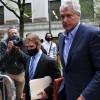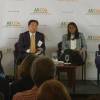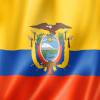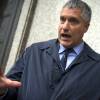Caso Chevron
Chevron's (And The Rule of Law's) Triumph: The Supreme Court Declines To Hear Donziger's Appeal
Forbes 20/06/2017

On Monday, June 19, 2017, in a few largely unnoticed words, the United States Supreme Court reaffirmed the Rule of Law. The Court declined to hear an appeal by disgraced attorney Steven Donziger of a District Court's finding that a $9.5 billion Ecuadorian judgment he had obtained against Chevron Corporation had been the product of his and others' fraud and racketeering, and was therefore unenforceable in the United States.
I have detailed the saga of Donziger's suit against Chevron, on behalf of Ecuadoreans in fact likely injured by actions of their country's state-owned PetroEcuador, extensively in this column. If you're new to the issue, just check my past columns using the links on this page, to bring yourself up to speed.
In 2014, Donziger was found by the U.S. District Court for the Southern District of New York to have violated the Racketeer Influenced and Corrupt Organizations Act (RICO), and to have committed extortion, money laundering, wire fraud, Foreign Corrupt Practices Act violations, witness tampering and obstruction of justice in obtaining an Ecuadorian judgment against Chevron and in trying to cover up his conduct. District Judge Kaplan detailed his findings of fact in a nearly 500-page decision. The U.S. Court of Appeals for the Second Circuit unanimously affirmed Judge Kaplan in 2016. It is Donziger's appeal of that Second Circuit decision that was dismissed on June 19.
Since the extent of Donziger's fraud was revealed, former allies who had jumped on his bandwagon jumped off.
- Donziger lost one of his former law firms, which paid $15 million to Chevron in partial compensation for having assisted a fraud.
- Donziger's environmental consultant, Stratus Consulting, settled Chevron's fraud and extortion suit against it by admitting knowing of attorney misconduct in the Ecuadorean litigation and by confirming that there was no scientific merit to the claims against Chevron.
- The principal third-party financier of Donziger's litigation, James Russell DeLeon of Gibraltar, issued a statement confirming "that representatives of the Lago Agrio plaintiffs, including Steven Donziger, misled me about important facts. If I had known these facts, I would not have funded the litigation. I no longer seek or wish to receive any financial benefit from this matter and I have therefore decided to relinquish my entire interest in the litigation to Chevron." A secondary financier, the UK litigation finance firm Woodsford, declared, "[H]aving become deeply concerned about the ethical standards of attorney Steven Donziger, Woodsford has decided to forego any financial benefit from this matter and to relinquish its entire interest in the proceeds of the litigation to Chevron."
- Alberto Guerra, the disgraced former Ecuadorean judge who presided over the case when it was filed in 2003, revealed that he was paid thousands of dollars by plaintiffs' lawyers and by a subsequent judge, Nicholas Zambrano, to illegally ghostwrite judicial orders issued by Zambrano and to steer the case in the plaintiffs' favor. Guerra confirmed that the plaintiffs' lawyers were permitted to draft the $18 billion (subsequently reduced to $9.5 billion) final judgment in their favor after they promised to pay Zambrano a $500,000 bribe out of the judgment's proceeds.
Meanwhile, Donziger has desperately tried to enforce the corrupt Ecuadorean judgement in other countries. [Chevron has no assets in Ecuador, so Donziger could not enforce it there.] In January 2017, an Ontario court rejected an attempt to enforce the Ecuadorian judgment against Chevron Canada Limited, a totally separate legal entity that was not a party to the Ecuadorian lawsuit and not named in the judgment. [Donziger evidently clings to the hope that the Supreme Court of Canada will overturn the Ontario ruling by flouting centuries of corporate law precedents.] Attorneys-General offices in Argentina and Brazil issued opinions in April 2016 and May 2015, respectively, to their courts recommending against recognition of the Ecuadorian judgment in those countries because (in the words of Brazil’s Deputy Prosecutor General) it was “issued in an irregular manner, especially under deplorable acts of corruption.”
Donziger's suit against Chevron has been called "the legal fraud of the Century." This century is still young, so we think that appellation may be a bit premature. But we do wonder about the Bar status of Steven Donziger. State Bar disciplinary boards often await the end of legal proceedings before launching disbarment actions against attorneys guilty of unethical behavior. I am not aware of any such actions currently pending against Steven Donziger, nor do I know if RICO charges were ever filed as per Judge Kaplan's intimation. If readers know of any developments in these areas, I would appreciate hearing of them -- I will revise this column if and as I learn of them. Meanwhile, I do intend to use the Steven Donziger case in next year's Legal Ethics class.
Michael Krauss is Professor of Law at the Antonin Scalia Law School of George Mason University, and is a nationally known scholar of Tort Law and Legal Ethics. His home page is here.
Fuente OriginalNotas relacionadas
-
 Inicia juicio contra abogado que demandó a Chevron por contaminación en Ecuador
Inicia juicio contra abogado que demandó a Chevron por contaminación en Ecuador -
 Caso Sobornos 2012-2016 es destacado en foro sobre lavado en Nueva York
Caso Sobornos 2012-2016 es destacado en foro sobre lavado en Nueva York -
 The world's best airport lounge has its own private wine cellar
The world's best airport lounge has its own private wine cellar -
 The Case of Chevron: The Government of Ecuador Has an Opportunity to Combat Corruption and Restore the Country’s Credibility
The Case of Chevron: The Government of Ecuador Has an Opportunity to Combat Corruption and Restore the Country’s Credibility -
 Steven Donziger – The Hits Keep Coming
Steven Donziger – The Hits Keep Coming -
 Analysis: Liberal Media Lionize Anti-Chevron Lawyer Steve Donziger
Analysis: Liberal Media Lionize Anti-Chevron Lawyer Steve Donziger
